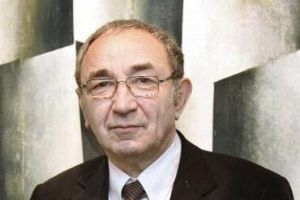
Lecture
Arseni Roginski
Memory and Freedom or How Many Pasts Exist in Russia?
Lecture by the historian and human rights activist
Introduced by Joachim Sartorius

Arseni Roginski © Bernardo Pérez
Arseni Roginski, born in 1946, worked as a bibliographer, teacher and historian. In 1981 he was given a four year prison sentence because he had published documents about the history of the gulag abroad. Roginski is one of the founders of the human rights organization Memorial and has been its chair since 1996. Memorial’s membership consists of around 80 independent organizations in countries of the former Soviet Union as well as Poland and Germany. Memorial is committed to a view of history as an indivisible unity of past, present and future, it seeks to preserve the memory of the victims of totalitarianism and promotes their rehabilitation.
“Memories of Stalinism are a subject which is equally topical and sensitive in today’s Russia“, Arseni Roginski is aware. In Russia Stalin is considered one of the three “outstanding personalities of all time“, new school text books justify his politics. The countless documents and books on Stalinism’s state terrorism appear to have little influence on collective memory. Roginski is convinced that collective identity is formed in relation to the past and makes the concerned diagnosis: “If we can speak of an historical memory in Russia, then it is one which is shattered, fragmented, dying and forced into the margins of collective consciousness.”
Arseni Roginski received the 2002 Lev Kopelev Prize for Peace and Human Rights on behalf of Memorial, in 2010 he was awarded Germany’s Federal Cross of Merit 1st Class.
